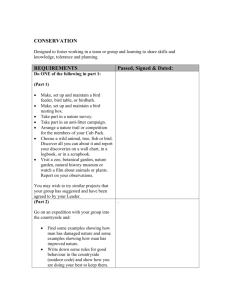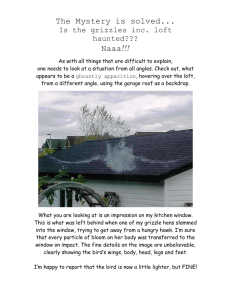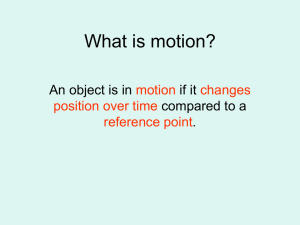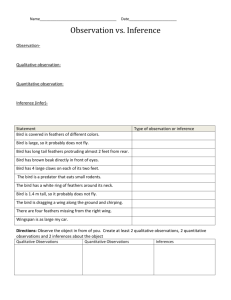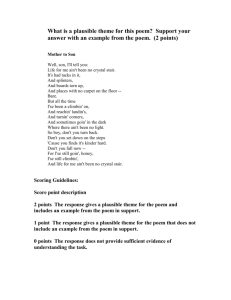The Oven Bird
advertisement
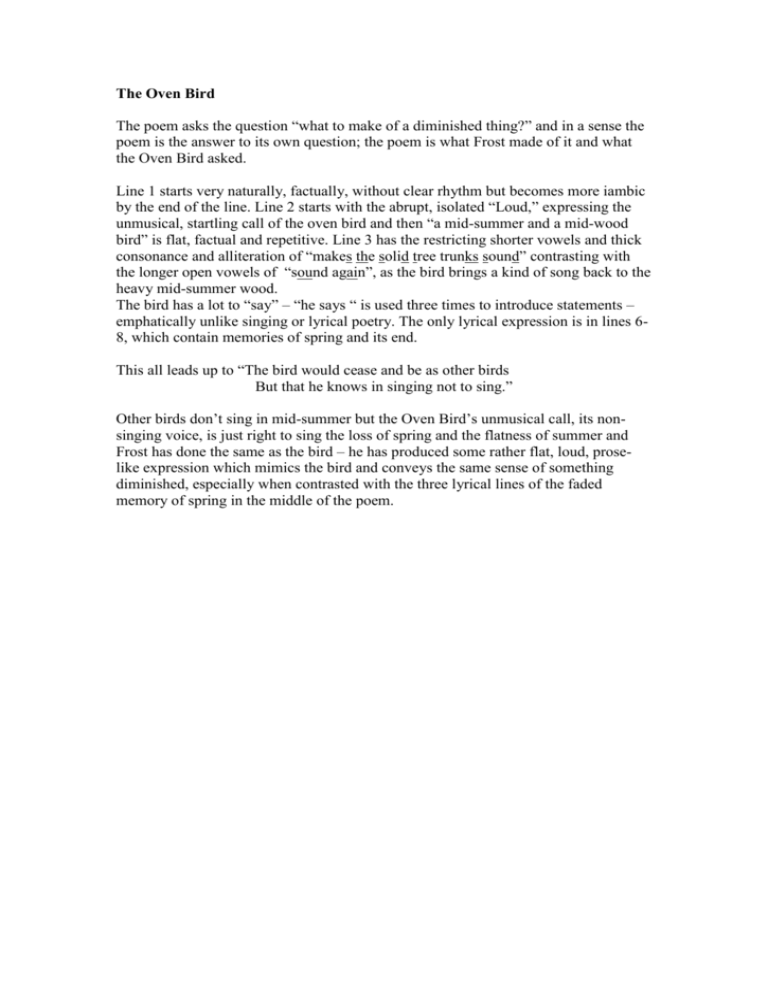
The Oven Bird The poem asks the question “what to make of a diminished thing?” and in a sense the poem is the answer to its own question; the poem is what Frost made of it and what the Oven Bird asked. Line 1 starts very naturally, factually, without clear rhythm but becomes more iambic by the end of the line. Line 2 starts with the abrupt, isolated “Loud,” expressing the unmusical, startling call of the oven bird and then “a mid-summer and a mid-wood bird” is flat, factual and repetitive. Line 3 has the restricting shorter vowels and thick consonance and alliteration of “makes the solid tree trunks sound” contrasting with the longer open vowels of “sound again”, as the bird brings a kind of song back to the heavy mid-summer wood. The bird has a lot to “say” – “he says “ is used three times to introduce statements – emphatically unlike singing or lyrical poetry. The only lyrical expression is in lines 68, which contain memories of spring and its end. This all leads up to “The bird would cease and be as other birds But that he knows in singing not to sing.” Other birds don’t sing in mid-summer but the Oven Bird’s unmusical call, its nonsinging voice, is just right to sing the loss of spring and the flatness of summer and Frost has done the same as the bird – he has produced some rather flat, loud, proselike expression which mimics the bird and conveys the same sense of something diminished, especially when contrasted with the three lyrical lines of the faded memory of spring in the middle of the poem.
